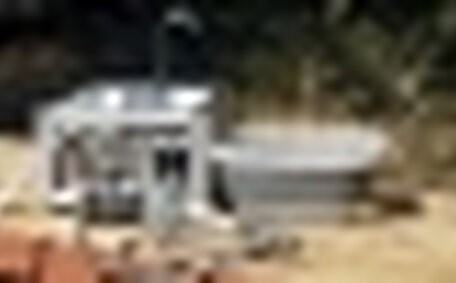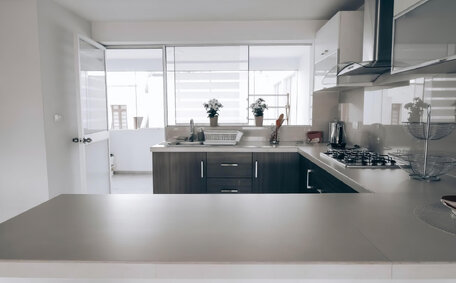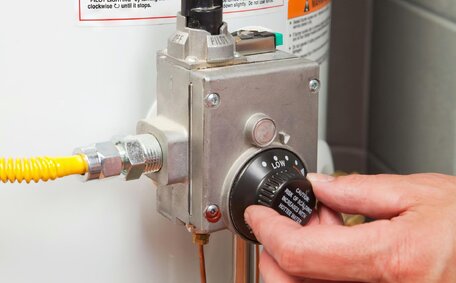Introduction to Cooking with Gas
Gas is a top choice for cooking, delivering numerous benefits. Let Riverwood Plumbing show you how gas cooking can enhance your kitchen experience.
Your gas stove and ranges offer unmatched control, direct heat, and swift cooking times. The direct heat from open flames on your gas cooktop allows for immediate temperature changes, elevating your cooking experience. Such precision means less time tinkering with heat levels and more time perfecting your culinary creations.
Gas cooking excels with even heat distribution, affordability, and a smaller environmental footprint. Natural gas appliances burn cleaner than electric, reducing indoor air pollution and offering cost savings over electric and induction alternatives.
In this informative guide from the experts at Riverwood Plumbing, learn more about the practical and enjoyable benefits cooking with gas can offer. From simmering sauces to searing steaks, we’ll explore how gas puts you in control and brings out the best flavours.
Precision Temperature Control
One of the biggest benefits of gas stoves is the precision temperature control they offer. With gas cooktops and gas ranges, the heat level can be adjusted instantly, meaning you have superior control over the cooking process.
This pinpoint precision is crucial for crafting the perfect flavours and textures in cooking. For instance, maintaining a gentle simmer for sauces -- a must for optimal taste -- is effortlessly achieved with a gas stove.
The immediate temperature adjustments gas range cooktops provide also aid greatly when searing meats. You can go from a fierce sear to a more moderate cooking level with a simple turn of the dial. This approach helps develop a flavorful crust on your food, like steaks or chops, without overcooking the inside.
Beyond flavour and texture impacts, the precision of gas also allows for roasting broiling techniques and more. These require very precise temperature control to ensure ingredients don’t burn or overheat.
For those seeking decisive control in the kitchen, gas is the unmatched choice. The instant and accurate heat adjustments possible give cooking pros and home chefs alike a leading edge in the kitchen.
Instant On/Off Flame
An instant flame control is indispensable for recipes with critical timing, enabling precise management from the moment ingredients hit the pan to the second they’re removed from the heat.
The instant flames are also ideal for cooking techniques like stir frying. These require very fast alternating between high heat for searing and lower temperatures to finish thicker ingredients without burning. Gas allows chefs to make these rapid-fire heat changes seamlessly.
The instant off function helps avoid overcooked or burned food. If liquids come to an unexpected boil or meat starts browning too quickly, you can instantly cut the heat while still retaining control of the cooking process.
So whether your recipe calls for a rolling boil, gentle simmer, or sporadic high-heat searing, the on-demand flames of a gas stove have you covered. This level of nimble temperature regulation offers a clear choice between gas and other cooking fuels.
Responsive Adjustments
One of the finest aspects of gas stove top is how responsive the flames are to adjustments. Because gas offers immediate heat changes, the flames can be finely tuned to suit different cooking needs.
The immediate responsiveness of gas is why professional chefs favour it. It offers nuanced control for simmering a delicate sauce or intense heat for a perfect sear on a steak.
In contrast to an electric cooktop, where temperature adjustments happen gradually as elements heat up or cool down, gas flames adapt immediately. In contrast, gas flames offer a direct connection between the cookware and the fuel source, which is more efficient than the indirect heat of an electric stove. This removes any lag in heating or cooling, allowing cooks to cater the flames to each recipe’s unique timing and temperature requirements.
So when a recipe calls for alternating between a rolling boil and gentle simmer, gas can smoothly transition between modes. And for dishes requiring sporadic high-heat searing, the instant intensity of gas has you covered. This unmatched responsiveness empowers home cooks and pros alike.
Cost-Effectiveness of Gas
When it comes to cost savings, gas reigns supreme over electric induction or other cooktops. Gas appliances are generally cheaper to operate on a day-to-day basis, leading to lower energy bills over time.
This efficiency can tip the balance between gas electric, making gas a very economical cooking fuel. Natural gas is more cost-effective than electricity when comparing costs per unit of energy. Gas also wastes less unused heat, concentrating energy directly into cookware.
Cooking with gas can result in annual savings of AUD 40 to 100 compared to electric stoves, keeping that money in your pocket instead of with utility companies.
Gas ranges and cooktops often come with more affordable price tags than electric or induction models. Their durability also translates into savings on replacement costs in the long run.
Over ten years, an efficient natural gas stove can save you more than AUD 1,500 compared to an electric stove, freeing up funds for vacations or other expenses.
It’s clear that for budget-conscious home chefs, gas stands out as the most cost-effective choice. To learn morecall us about efficient gas appliance options for your kitchen at Riverwood Plumbing.
Reliability During Power Outages
A significant advantage of gas stoves is their ability to function during power outages, operating on a direct natural gas supply to your home.
With natural gas appliances, you can light the flame with a match or igniter and continue cooking in your home, even during a blackout.
This reliability makes gas cooking stoves a significant advantage for households in areas prone to electrical disruptions. Families can still boil water for coffee, cook hot meals, or heat up infant formula, showcasing why should they consider gas as a reliable cooking solution.
So while electric oven and cooktop users are left scrambling when the lights go out, gas stove owners can take disruptions in stride. Riverwood Plumbing encourages customers who currently utilise an electric range to consider the secure alternative that gas provides.
Versatile and Adaptable
One of the best aspects of gas stoves is their versatility and ability to adapt to different cooking needs. Gas burners are compatible with an expansive range of cookware, from woks to Dutch ovens.
This versatility, accentuated by an open flame, makes gas ideal for diverse cooking techniques. The open flames can concentrate intense heat directly on pots and pans for activities like frying or searing. Yet they can quickly dial down nicely to gently simmer sauces or melt chocolate.
Gas ovens offer an ideal heat source for round-bottom woks for stir-fries, while their grates securely accommodate heavy, flat-bottomed pans. Moreover, you can effortlessly slide pans across burners without lifting.
In addition, gas ovens excel at everyday tasks like baking casseroles along with more advanced techniques like broiling. The adaptable nature of gas heat is key to meeting various home cooking requirements.
Environmental Considerations
With regards to environmental impact, natural gas stands out as the cleanest fossil fuel for cooking, emitting approximately 30% less CO2 per energy unit than oil or coal.
Therefore, gas stoves offer superior indoor air quality compared to other fuels and contribute to less overall air pollution, generating fewer greenhouse gases than conventional electric power generation.
Beyond emissions, gas appliances stand out for their energy efficiency. Modern gas burners focus heat directly into cookware, wasting less energy than gas electric coil or induction elements which lose more heat into the surrounding environment.
So for cooks concerned both about their indoor living space and the wider environment, gas allows clean and efficient fuel usage. Riverwood Plumbing is happy to advise on the latest low-emission gas appliances for your eco-conscious kitchen.
Maintenance for Longevity
To keep your gas appliances running safely and efficiently for years to come, be sure to follow the manufacturer’s recommendations for cleaning and maintenance.
It’s essential to frequently clean your gas cooktop’s burners and surface with natural cleaners. After cooking, wipe off any grease and residue using warm, soapy water and a soft cloth. Don’t forget to deep clean burner caps and ignition ports to prevent blockages.
Organise for a professional service of your gas appliances every one to two years, which should include wear and tear inspections, gas connection checks, oven interior cleaning, and flame calibration.
Regularly inspect flexible gas lines for any kinks and cracks to prevent hazardous leaks. Be aware of leak indicators, like the smell of rotten eggs or the presence of carbon monoxide. In case of detection, shut off the gas immediately and contact a professional.
Upgrading to modern gas appliances can enhance energy efficiency and safety, with newer models featuring ignition systems that do away with the need for a constantly lit pilot light.
Proper maintenance and care will ensure your gas cooking appliances offer reliable service for more than twenty years. It’s an investment that pays off over time!






